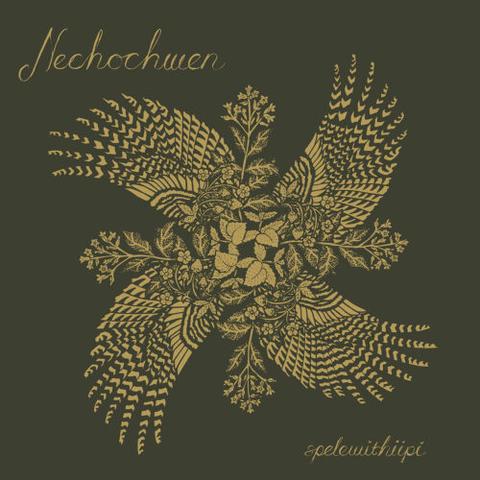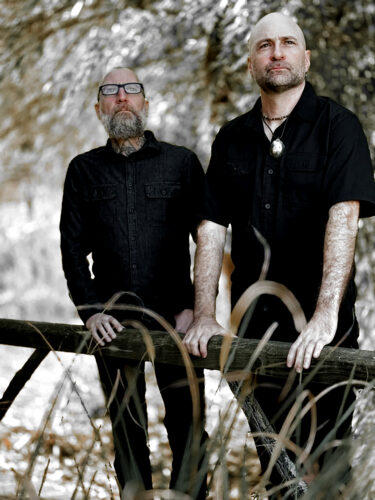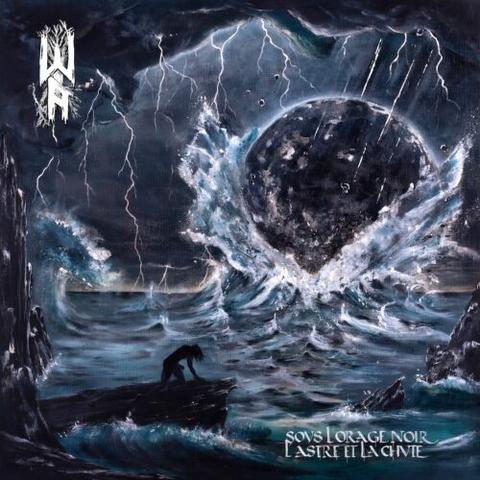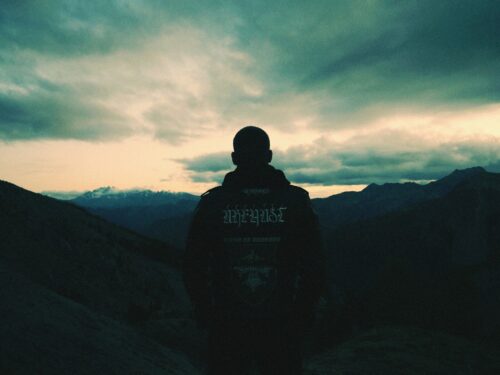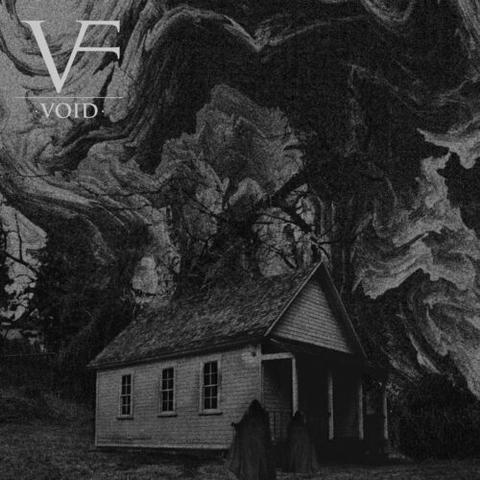Nechochwen – Spelewithiipi Review
By Killjoy
It can be healthy for artists to periodically take time to reset and remember what first compelled them to start creating music. Aaron Carey originally founded Nechochwen in West Virginia as an unostentatious acoustic guitar project paying homage to his Native American lineage. It didn’t take long for black metal influence to emerge and with the addition of Andrew D’Cagna as the rhythm section, the two styles proved a potent pairing to explore the cultural history sewn into every note. 2015’s Heart of Akamon was well-received in the metal community and by our Vice Overlord Steel Druhm, who later went on to underrate their very good1 follow-up Kanawha Black. During all this time,2 Nechochwen had been quietly working on Spelewithiipi, a fully instrumental acoustic folk album akin to their debut full-length Algonkian Mythos. Can Nechochwen come full circle and revisit an older style without feeling like a step backward?
Nechochwen was always more inclined to reach for an acoustic guitar than an electric, but Spelewithiipi takes it a step further. Carey’s multi-tracked acoustic guitars enjoy near total exclusivity, plucking and strumming along like a bolder variation of older (and newer) October Falls. This is something of a double-edged sword—there is little to distract from the graceful guitar melodies, but the emotive burden of proof falling solely upon one instrument can be a challenging songwriting prospect. This may be why similar-minded neofolk albums from Thurnin and Wÿntër Ärvń in recent months opted to diversify with various other folk instrumentation, and Spelewithiipi follows suit, albeit sparingly. Here and there, indigenous drum beats (“Lenawe’owiin,” “Spelewithiipi,” “Primordial Passage”), a full drum kit (“Precipice of Stone”), and a gentle flute (“Lenawe’owiin,” “Spelewithiipi”) provide embellishment. This pared-back instrumentation is an important part of Spelewithiipi’s reverent, intimate nature.
At this point in his career, Carey can wring seemingly every ounce of breadth and depth from his weapon of choice. The acoustic guitar lines, usually appearing in pairs, flow and breathe as they fluctuate in intensity and complexity. Sometimes they’re straightforward, with clear lead and rhythm roles (“Nemacolin’s Path,” “Spelewithiipi”). Elsewhere, Nechochwen weaves multiple distinct melodies together into a more elegant soundscape (“Tpwiiwe,” “Precipice of Stone”). Unsurprisingly, the music is intrinsically bonded with nature, the rain sounds in “Othaškwa’alowethi behme” adding a mystical effect to the stream of twanging guitar notes. The best and most passionate performance lies in “Mthothwathiipi,” which features a gentle, cascading tune that gives way to vigorous fingerpicking laced with percussive slaps. The immense skill on display almost convinces me that Nechochwen might be better off in this unplugged realm.
Almost. Like a phantom limb, I find it impossible not to miss Nechochwen’s black metal side. In my view, their appeal mainly stemmed from the meticulous melding of acoustic folk with metal, not either component taken individually. Therefore, an attempt to decouple them was, perhaps, destined to yield a diminished result. Even setting aside genre preferences, Spelewithiipi lacks much of the structure and focus from when Nechochwen were grounded in black metal conventions. The first half of the record fares better thanks to more developed melodies, whereas the back half feels more barren and aimless (particularly “Primordial Passage”), but nearly every song suffers to some extent from rocky transitions or promising ideas cut short. With fewer musical handholds on Spelewithiipi, the overall songwriting needed to be more coherent and engaging to make up the difference.
Spelewithiipi is not an immediate album; it invites rather than seizes the listener’s attention. Accordingly, fans of Nechochwen’s recent work will likely need to manage expectations and exercise patience. As I spent time with it and let go of what I wanted to hear from Nechochwen, I gained greater appreciation of what they created. Aaron Carey plays heartfelt, stirring acoustic guitar lines the likes of which I’ve never heard before, and I’m in awe of his instrumental mastery. Yet, even the best guitarwork on Spelewithiipi is not quite as captivating as that of Heart of Akamon or Kanawha Black. This, plus the relinquishment of metal influence and its short 31-minute runtime, make it hard to see Spelewithiipi as a complete Nechochwen record. But, even so, this is still a pleasant walk through the woods worth taking.
Rating: 3.0/5.0
DR: 13 | Format Reviewed: 192 kbps mp3
Label: Nordvis Produktion
Websites: nechochwen-nordvis.bandcamp.com | facebook.com/nechochwen
Releases Worldwide: May 9th, 2025
#2025 #30 #AmericanMetal #DarkFolk #DarkNeofolk #Folk #Instrumental #May25 #Nechochwen #NordvisProduktion #NotMetal #OctoberFalls #Review #Reviews #Spelewithiipi #Thurnin #WÿntërÄrvń
